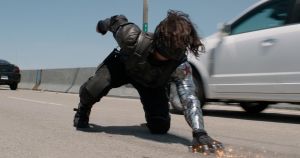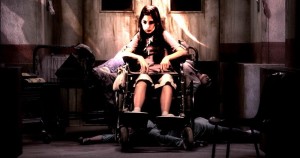
Review: Omegaball by Robert J. Peterson
I was intrigued by the virtual-reality premise, but this book is a veritable hotbed of misogyny and a case study in how not to write a wheelchair-using character.

I was intrigued by the virtual-reality premise, but this book is a veritable hotbed of misogyny and a case study in how not to write a wheelchair-using character.

We recap the highlights of our #diklSFF Twitter chat, including a link to the full Storify.

Magic and technology often minimize disability in SF/F. How can authors meaningfully engage with disability and the ways that speculative elements can affect disabled characters?

Speculative fiction is work that focuses on difference, work that immerses us in it. But the choices we make when building a fictional world can reflect on the world that we live in now. So how do we worldbuild with disability in mind?

Our reviewers interview author and Disability in Kidlit editor Corinne Duyvis about disability tropes, survival in the apocalypse, and writerly research.

An emotionally wrenching book, but a worthy one, and one that treats its autistic protagonist with every bit of the realism and respect that she deserves.

When we talk about disability and sci-fi/fantasy, the first thing many will think of is the magical disability trope. But what does this trope entail and imply? And how can you subvert it?

I related to Mahlia’s struggle with the harsh words hurled at her because of her limb deficiency—sometimes wanting to prove herself and sometimes wanting to keep her distance.

Heidi Heilig and S. Jae-Jones sit down to talk about the book’s portrayal of bipolar disorder, writing mental illness, and writing with a mental illness.

These magical or futuristic “fixes” seem rooted in a discomfort with disability: many writers cannot (or don’t want to) imagine a life without sight and therefore create excuses to give their character equivalent sighted experiences.